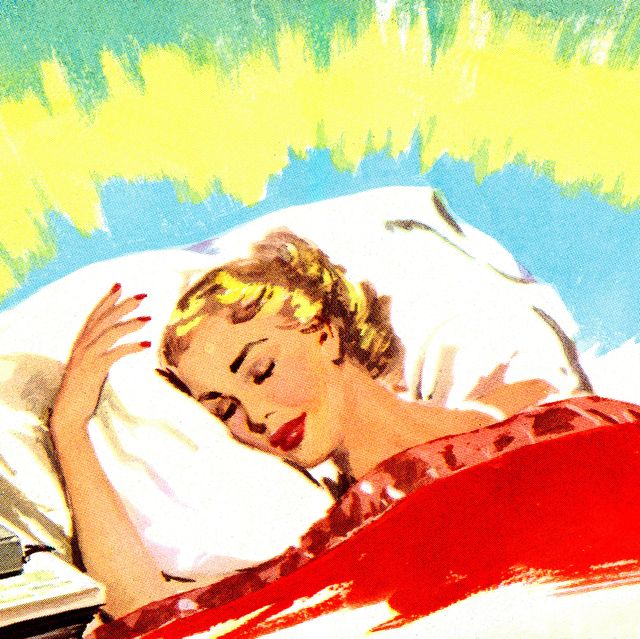
Are you getting enough zzz’s every night? Sleep is good for our mind, body, and soul and we ALL need a good balance of it. Unfortunately, in today’s world of hectic lifestyles and rushing around, sleep has become underrated as we cut hours of our sleep to fit in everything we need to do.
But research has proven that those who get at least 8 hours and no less than 6 hours of sleep each night have a 30% less chance of developing life-threatening conditions such as heart disease and cancer. (1) (2)
So, let’s have a closer look at why sleep is truly vital to our health and wellbeing.
Sleep Deprivation Symptoms
When you are sleep deprived over a short or long period of time, you can expect some of these common and/or serious issues that can cause long term health consequences:
- Sleepiness
Having a feeling of daytime drowsiness or sleepiness, in which you have a strong desire to fall asleep is difficult to cope with and can lead to a more deep-rooted sense of feeling fatigued which can wreak havoc with our adrenals.
- Difficulty Concentrating
Your ability to be attentive requires a well-rested brain so without enough sleep, we eventually develop an often subtle but chronic inability to focus and concentrate. This decreased alertness may lead to errors and accidents of all kinds.
- Memory and Thinking Problems
Sleep has important effects on our ability to think and process memories and higher-level functions, such as planning, organization, and judgment. Sleep is critical to processing memory and helps us to consolidate our day’s events. Our dreams are an important part of that as well.
- Hallucinations
Sleep deprivation may also lead to some unexpected and more severe psychiatric consequences including hallucinations, and paranoia. (3)
Why Sleep Is So Important
Here are a few good reasons to focus on getting the proper amount of sleep every night:
- Basic Survival
Simply put — sleep affects our mental, physical, and emotional well-being. Every moment of our day and every part of our life. It is through sleep that we rejuvenate and recover from everything we do. Without it – we can’t function properly especially when our circadian rhythms are disrupted for a long time.
- Weight Loss
You must have heard by now how much sleep and weight loss go hand in hand. Sleep deprivation alters our levels of hormones in the body that regulate hunger. When things are off, these can cause an increase in appetite. Finding the happy medium is the key — proper sleep can help you avoid weight gain and you may even lose weight over time but too much sleep can cause your waistline to expand making you gain as much weight – possibly more – than sleeping too little.
Researchers say – anything over 9 hours – or under 7 hours – puts you in the danger zone for weight gain. Also important is to be sure to burn more calories than you are eating. (4) (5)
- Brain Health and Mood Disorders
A lack of sleep is believed to be directly responsible for a range of mood disorders including irritability or an inability to cope with life as well as long-term depression and/or anxiety. (6)
Beyond the negative psychological impact sleep deprivation can have on your life, research shows poor sleep is related to Alzheimer’s disease. The Alzheimer’s Association says someone in the US develops the disease every 65 seconds and there are 5.8 million Americans living with this neurodegenerative disease – the most common form of dementia. (7)
One of the most important findings that connect Alzheimer’s to sleep issues is the accumulation of a brain protein known as beta-amyloid. Getting enough sleep clears it and not enough sleep allows it to build up. (8)
- Immune System Boost
To stay healthy, it is important to set your goal at getting seven to eight hours of sleep a night. This will help keep your immune system in fighting shape and also protect you from other health issues including heart disease, diabetes, and obesity. If your sleep schedule is interrupted by a busy workweek or other factors, try to make up for the lost rest with naps.
The bottom line is — Our immune system gets a real boost from regular sleep and doesn’t function optimally when we haven’t had enough of it leaving us to become more susceptible to the bacteria and viruses in our environment. (9) (10)
1) https://pubmed.ncbi.nlm.nih.gov/26039963/
2) https://doi.org/10.2147/NSS.S134864
3) https://www.ncbi.nlm.nih.gov/pmc/articles/PMC3674021/
4) https://www.ncbi.nlm.nih.gov/pmc/articles/PMC2279744/
5) https://www.ncbi.nlm.nih.gov/pmc/articles/PMC3764138/
6) https://www.ncbi.nlm.nih.gov/pmc/articles/PMC4318605/
7) https://www.alz.org/media/documents/alzheimers-facts-and-figures-2019-r.pdf
8) https://www.nih.gov/news-events/nih-research-matters/sleep-deprivation-increases-alzheimers-protein
9) https://www.ncbi.nlm.nih.gov/pmc/articles/PMC4495408/
10) https://www.sciencedaily.com/releases/2017/01/170127113010.htm

